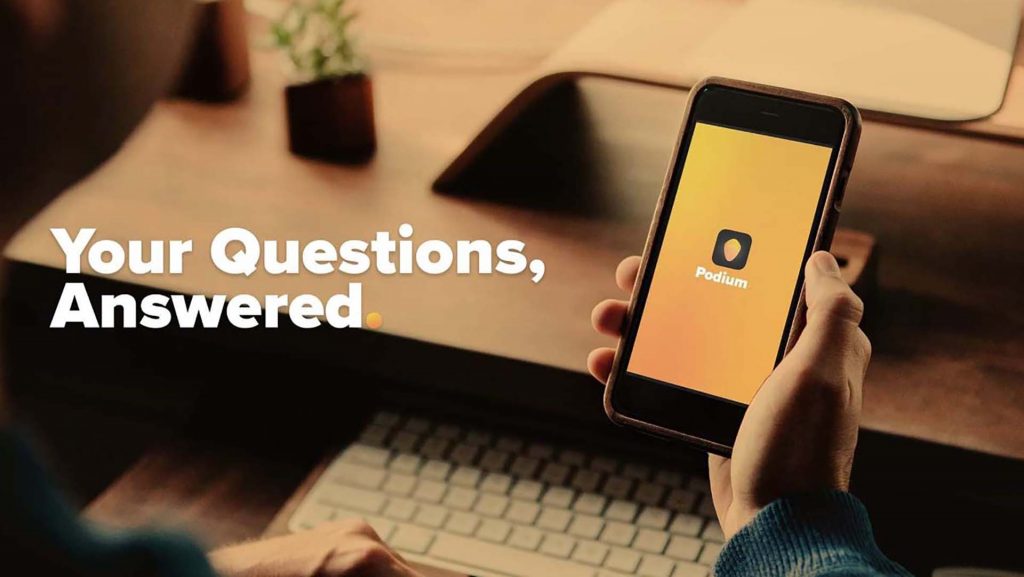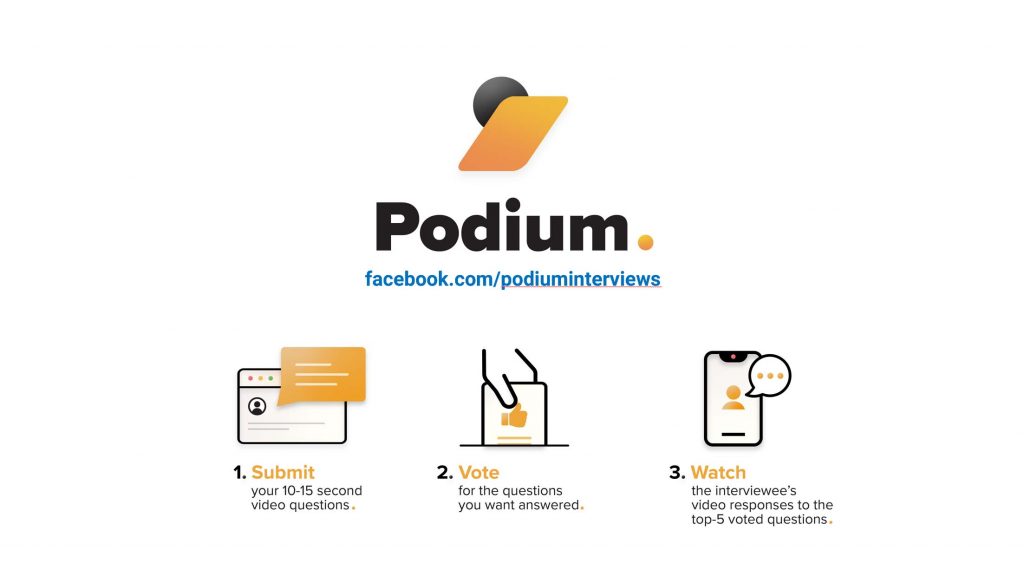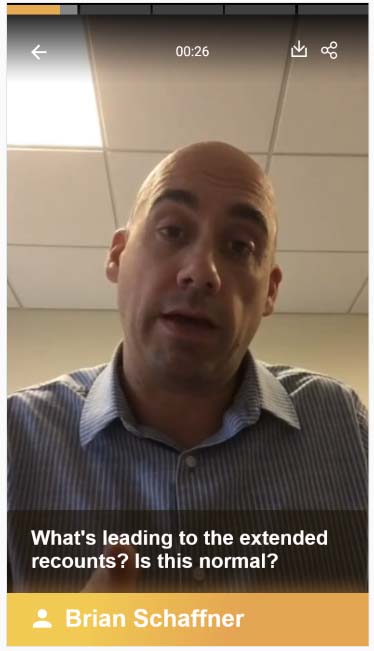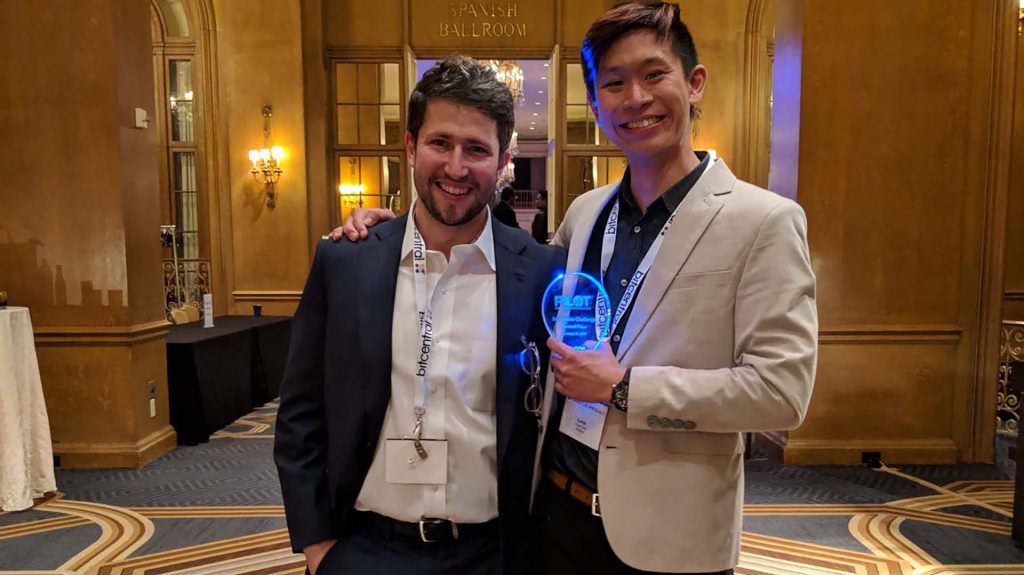
Daniel Lewis can’t wait to get back to working full-time on his prize-winning new interview app. And he will — just as soon as the school year ends.
Lewis and his Tufts University classmate Covie Goh are the founders of Podium, which won second prize in the NAB Pilot Innovation Challenge, an annual competition run by the National Association of Broadcasters’ digital innovation initiative. (Our Cronkite School colleague Retha Hill and her students won an “Innovator Award” for their experimental project AR Stories — a cost-effective and accessible tool for using augmented reality in weather reporting.)
The Challenge question this time around was “What is an innovative way broadcasters and other local media could serve communities?” Podium’s premise is to provide a new interactive medium for newsmakers or journalists to engage with consumers while filtering out the noise and distractions of existing social-media platforms.

“A lot of organizations that have tried to do this focus on many-to-many conversations,” Lewis told me when I tracked him down in Europe over spring break. “And many-to-many conversation is not conducive to any form of actual good, meaningful dialogue.” He describes Podium as “a new form of interactive media that allows users to feel like they’re almost having a conversation with an individual, rather than just watching them have a conversation with someone else.”
Note that word “almost.” Podium enables its users to submit questions for an interview subject — a newsmaker or celebrity, say — and then vote on the very best questions, which the subject then answers at his or her own convenience. Think of it as an asynchronous interview in which the subject responds to a set of questions filtered through the wisdom of the crowd. “That concept of crowd-sourced journalism was the impetus behind coming up with Podium,” says Lewis. “We’re trying to create this form of engagement that’s even more direct than Facebook Live and Instagram Stories by actually making it a conversation rather than just a broadcast.”
Podium lives on the web for the moment, but the founders hope to have a mobile app up and running by early next year — just in time for the presidential election. The mobile app will feature video questions; right now, the answers are on video, but the questions are text-based. The questions are to be kept very short — just how short is still to be determined —- and ideally the answers will be too. I asked Lewis whether the product is intended for mosquito-like attention spans. “It’s designed for a little bit bigger than that, but definitely shorter ones, yeah.”

That said, Lewis has a refreshing confidence in younger consumers’ desire to connect with newsmakers rather than just talk amongst themselves. “Our belief is that genuine face-to-face interaction shouldn’t be between our users, because they often don’t really care what the others have to say, but they do care about what the interviewees have to say in response to their questions.”
Lewis and Goh have come this far on modest means: a $10,000 prize from Tufts and $25,000 more from the NAB Pilot competition. Before they try to raise more money, Lewis says they plan a lot more experiments this summer, mostly with journalists and news organizations, who “want to find new ways to engage with their audiences, but they want to do it in a way that’s not overwhelming.”

Lewis hopes that newsrooms will see the appeal of enlisting viewers and users in the question generation and selection process — as well as the appeal of letting Podium provide the platform for that rather than replicating the process themselves. “We’re creating an intimate form of conversational engagement that these news organizations haven’t had before,” Lewis says.
Podium is not yet ready for its close-up. There’s still a lot of work for Lewis and Goh to do: refining the process for culling the questions, especially if the product starts to scale; figuring out the business model, whether it’s a software license or a slice of ad revenue or some combination; balancing priorities between creating original Podium content and making the tool available to news organizations as a “white-label service”; and most important of course, building the video-based mobile app.
But first comes the NAB Show in Las Vegas, where the two founders will be looking for advice and connections. They’ve earned a victory lap — even if it means cutting a class or two.